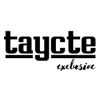A new food technology startup is asking whether consumers and manufacturers actually know what's in their meat.
Claims like antibiotic-free and hormone-free are often decided by their manufacturers, and not always confirmed by outside testing. Food In-Depth (FoodID) is a scientific food testing company that wants to change that.
FoodID, which was co-founded by natural meat pioneer Bill Niman, is launching a platform that tests for seven drug families representing 95% of the most common antibiotics and adulterants often administered to animals through feed and water.
"Most insiders, sort of with a wink of the eye, understand that many of these claims are really not based in fact and are likely to be untrue," Niman told Food Dive.
Niman spent more than three decades growing Niman Ranch into a top natural meat supplier before he sold it in 2005. Then he built up his sustainable meat brand BN Ranch, which he started in 2007 and sold to Blue Apron in 2017.
"[I] spent so many decades raising animals, and making sure that whatever we said they were, they were and went to great lengths to do that... but always knowing that there were other people out there on the landscape and in the same places, competing for the same business that weren't quite so genuine about what they were doing," Niman said.
In the release announcing the startup, FoodID calls this testing development a big deal because they say that "antibiotic resistant superbugs pose one of the biggest public health threats of our time." According to Pew, 75% to 80% of all antibiotics globally are given to animals raised for food. Recent reports have found that the meat industry overfeeds antibiotics to animals, which can make humans more vulnerable to infections.
So far, technology for testing in the livestock system haven't been able to move at the pace and scale necessary, FoodID said in the release.
"People deserve to know what’s in their food, and they’ve come to expect transparency from the products they buy and the companies they support," FoodID CEO Kevin Lo, a veteran of Facebook and Google, said in a statement.
The company says its testing is rigorous, with the ability to detect low levels of substances while working in real-time at the speed of the processing line. FoodID also claims that it is 100 times more affordable than alternatives.
The origins of the idea
Almost six years ago, co-founder Dan Denney, who received a Ph.D. in microbiology and immunology from Stanford, was trying to purchase organic and free-from food. He assumed that a government agency was validating and authenticating the claims made on meat labels, but when he found out that wasn't the case, he wanted to create a technology that could.
Through a mutual friend, Denney connected with Niman. Niman then began to share his experience in the animal food industry, explaining his "firsthand knowledge of people saying one thing [but] actually doing another," Niman recalled. That's when the two teamed up, starting to raise funding and develop the technology.
"I firmly embraced it and was very enthusiastic, thinking that gone would be the days of affidavit-based brand claims," Niman said. "Now we look at applied science and technology and data to verify, validate and authenticate what's being said in the marketplace."
Billions of chickens and millions of cattle and pigs are processed for consumption annually, but only about 21,000 are tested per year, according to FoodID. There is currently no one definition for "antibiotic-free" on food labels and it is not approved by the USDA, according to the CDC.
"Consumer preferences are going to demand authentication, from science and technology, which to date, has not happened."

Bill Niman
Co-founder, FoodID
Typically, for example, slaughterhouses would have to test animals killed on Friday, where the tissue samples would be sent to a lab and results would be ready Monday morning, Niman said. But anything killed Monday through Thursday would be cut up the next day likely without a test and put in a box, which is the standard industry model.
Now, within 10 minutes of using the FoodID test, which is based on lateral flow technology, the results will be known well before the animals are processed further. After the sample is extracted, it is drained onto a cassette about the size of a credit card and then a device can read and transmit the results.
Demand for authentication
FoodID is currently testing beef, pork and poultry in facilities in the U.S. and Canada, including pasture-raised heirloom chicken producer Cooks Venture and clean meat provider Beretta Farms. Niman said these are its "alpha companies," along with a couple other big name companies they can't announce at this time, but will be named soon.
Niman said launching first with Cooks Venture and Beretta Farms was a good fit because they are strong believers in authenticity and "it wasn't just about covering their ass on a claim; it was about really having insight, science, really good knowledge to really validate exactly everything that they're doing."
In a poultry report on Cooks Venture, Food In-Depth tested multiple birds from every chicken house prior to their production. The birds were chosen randomly, and the testing was conducted on the liver, kidney and muscle tissue.
"We have read about misleading claims in agriculture for years along with concerns over antibiotic resistance. We know that many label claims are simply not true. It is vitally important to us to validate our claims of no antibiotics ever and Non-GMO with scientific data and now we can," Matt Wadiak, Cooks Venture founder and CEO, said in a statement. "Mislabeling is bad for people. Bad for the planet. And bad for farmers like us who work hard to raise good meat."
In 2013, the FDA released a report claiming that as much as 81% of raw ground turkey was contaminated with antibiotic-resistant bacteria. However, sales of medically important antimicrobials used in food-producing animals have dropped since the FDA banned the use of antibiotics for growth promotion and restricted over-the-counter use in 2017.

FoodID has a team of ranchers, scientists and technologists, as well as board members like Walter Robb, former co-CEO of Whole Foods, and Chuck Templeton, founder and former CEO of OpenTable and managing director of S2G Ventures. Investors include S2G Ventures and OCA Ventures.
Niman said this testing will not pick up overnight, but the company is invested for the long haul, with thoughtful people and money backing it. He said consumers will be happy to know when today's "Scout's honor claims will no longer be enough."
Before and after the coronavirus, consumers are wanting to know more, Niman said. More studies have recently shown that shoppers are evaluating their food based on what's in them and food labeling has only become more important during the pandemic.
"Consumer preferences are going to demand authentication, from science and technology, which to date, has not happened," he said. "We hope to see a QR code in fresh meats and poultry throughout the country, and we're convinced that consumers, once they learn about this, would be willing to pay a few pennies more per pound to get that kind of validation."





















